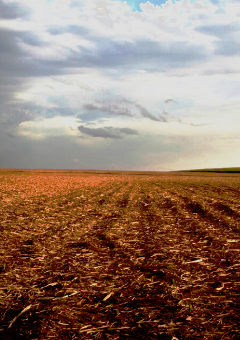Food shock study has dark warning
 Researchers expect sudden losses in food production will increase, threatening global food security.
Researchers expect sudden losses in food production will increase, threatening global food security.
Global food production is suffering from an increasing number of ‘food shocks’, a new study shows, with most caused by extreme weather and geopolitical crises.
The study looked at 53 years of food production data and found that some regions are hot spots for sudden losses to food production, or ‘shocks’, which are becoming more common around the world.
“In recent decades we have become increasingly familiar with images in the media of disasters such as drought and famine around the world,” lead author Richard Cottrell said.
“Our study confirms that food production shocks have become more frequent, posing a growing danger to global food production.
“We looked at the full range of global food production systems, covering crops, livestock, fisheries and aquaculture.
“We found that crops and livestock are slightly more shock-prone than fisheries and aquaculture, and some regions, such as South Asia, are more frequently affected than others.
“While the number of food shocks fluctuates from year to year, the long-term trend shows they are happening more often.”
Mr Cottrell said the increasing frequency of food shocks gave people and communities less recovery time between events and eroded their resilience.
“Reduced recovery time hinders coping strategies such as accumulating food or assets for use during times of hardship,” he said.
“Combined with adverse climate conditions, conflict related shocks to food production across sub-Saharan Africa and the Middle East have led to a rise in global hunger since 2010.
“Land-based crop and livestock production are particularly vulnerable to extreme weather events such as drought, which are expected to become more frequent and intense with climate change.
“However, marine-based food production is not immune from shocks.
“Overfishing was responsible for 45 per cent of shocks detected in landing data, while disruptions to aquaculture production have risen faster and to a higher level than any other sector since the 1980s.
“Globalised trade and the dependence of many countries on food imports mean that food shocks are a global problem, and the international community faces a significant challenge to build resilience.
“This can be done through measures such as investing in climate-smart food systems, and building food reserves in import-dependent nations so they are better able to deal with the impact of disruption caused by problems such as climate change,” Mr Cottrell said.








 Print
Print